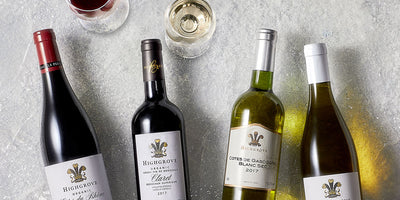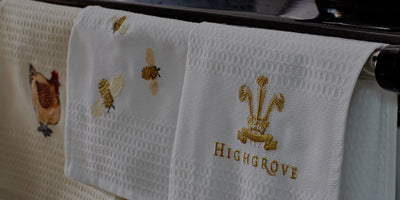Highgrove Gardens
Garden Tours
Back
Events & Workshops
Back
- New! End of Winter Wellbeing with Cotswold Therapia
- New! Aromatherapy Candle Pouring with Misneach Remedies
- Rose Pruning with David Austin Roses
- Floral Art with Resin with Emma from Nature's Inspiration
- Copper Foil Stained Glass with Sarah Davis
- Botanical Casting with Clare Mahoney
- Modern Calligraphy with Mellor & Rose
- **Sold Out** Silver Ring in a Day with Zoe Watts
The Highgrove Shop
Back
- Highgrove Offers
- The King's Rose
- Highgrove Gardens Fine Bone China
- Highgrove x Lock & Co.
- Highgrove x Penhaligon's
- Highgrove x Burberry
- Highgrove x Sanderson
- Highgrove x Truefitt & Hill
- Honey Bee Collection
- Sovereign Celebrations
- Rory Hutton
- Rosie Sugden Cashmere Accessories
- Chelsea Porcelain
- Royal Gardens Fine Bone China
- His Majesty The King's Watercolour Collection
- Emma Stothard Willow Sculptures
- Highgrove Heritage Collection
- Prince of Wales Check
- Miriam Collection
- Turquoise Mountain
- Bramley Bath & Body
- Country Garden Tableware
- A Taste of Highgrove
- Wedding & Anniversary Gifts
- Wildflower Meadow Prints & Greeting Cards
Book Now
Events & Workshops
- New! End of Winter Wellbeing with Cotswold Therapia
- New! Aromatherapy Candle Pouring with Misneach Remedies
- Rose Pruning with David Austin Roses
- Floral Art with Resin with Emma from Nature's Inspiration
- Copper Foil Stained Glass with Sarah Davis
- Botanical Casting with Clare Mahoney
- Modern Calligraphy with Mellor & Rose
- **Sold Out** Silver Ring in a Day with Zoe Watts
Workshops
The Highgrove Shop
- Rory Hutton
- Rosie Sugden Cashmere Accessories
- Chelsea Porcelain
- Royal Gardens Fine Bone China
- His Majesty The King's Watercolour Collection
- Emma Stothard Willow Sculptures
- Highgrove Heritage Collection
- Prince of Wales Check
- Miriam Collection
- Turquoise Mountain
- Bramley Bath & Body
- Country Garden Tableware
- A Taste of Highgrove
- Wedding & Anniversary Gifts
- Wildflower Meadow Prints & Greeting Cards





